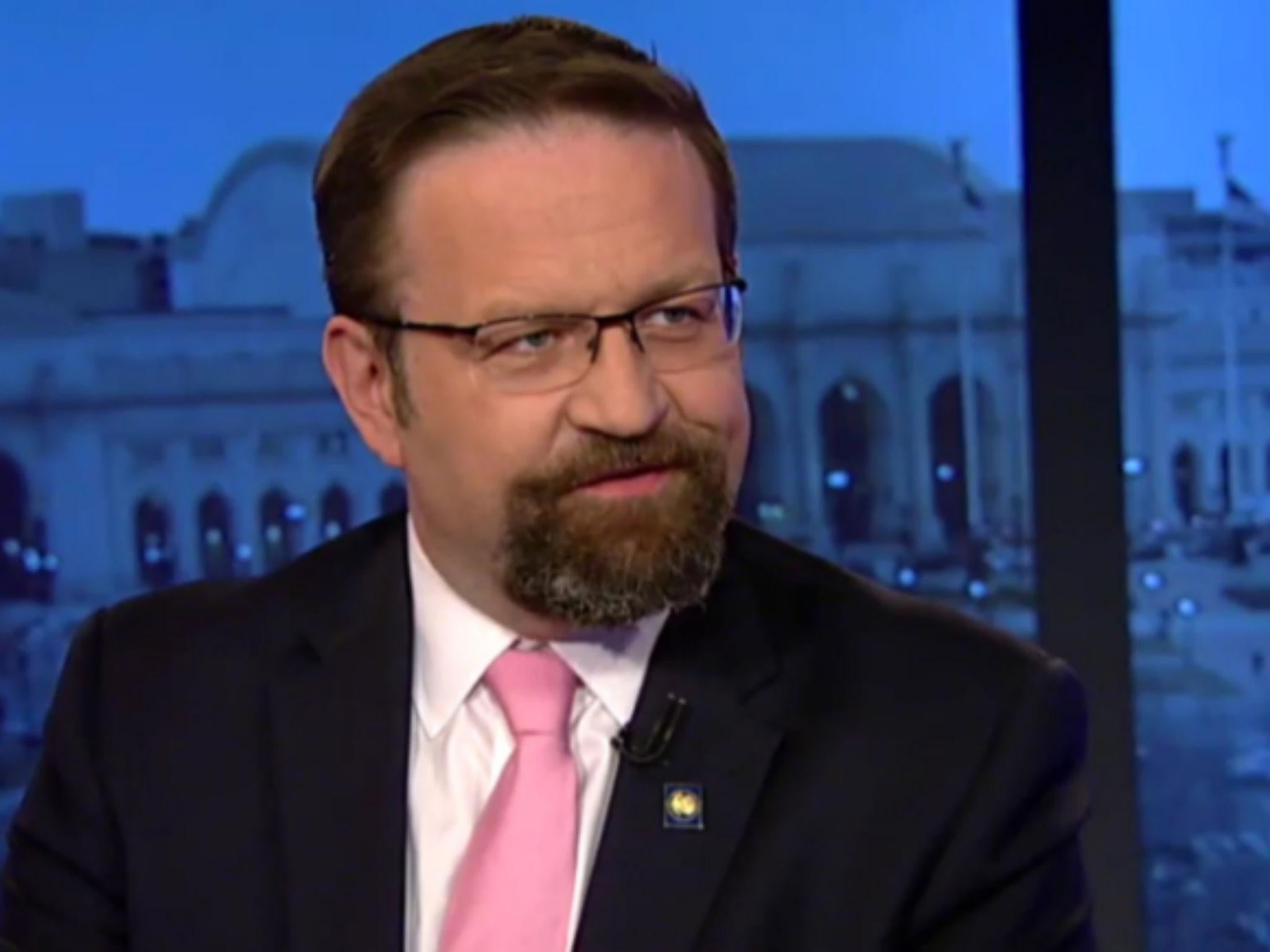Donald Trump aide Sebastian Gorka 'tried to partition Libya into three by drawing map on a napkin'
Adviser said to have been told his proposal to end violence in the country was the 'worst possible solution'

One of Donald Trump’s closest aides reportedly tried to partition Libya into three by drawing a map on a napkin.
Sebastian Gorka, a member of the President's national security advisory staff, is said to have presented the plan to a senior European diplomat at a meeting during the presidential transition period.
The plan was based on the old Ottoman Empire provinces, according to The Guardian: Cyrenaica in the east, Tripolitania in the north-west and Fezzan in the south-west.
The provinces remained in place until 1911, when Italy gained control of the country following the Italo-Turkish War.
His suggestion for the country, which has been engulfed by violence since the Nato-backed removal of former president Muammar Gaddafi in 2011, was reportedly dismissed as 'the worst possible solution'.
In an attempt to restore stability, the Obama Administration supported Libyan government of national accord, led by Fayez al-Sarraj, which is also backed by the United Nations (UN).
But the east of the country is controlled by Khalifa Haftar, an anti-Islamist military strongman who was previously a leader of the anti-Gaddafi rebels.
The power struggle between the two factions has led some to suggest that the country could be split up.
But experts have warned that this could lead to another civil war because the borders of the two new states would be highly contentious.
“This is like a litmus test of how much you know about Libya. If you the only thing you know is that it was cut into three, then it shows you are clueless about the situation in Libya,” Mattia Toaldo, a Libya expert at the European Council on Foreign Relations thinktank, told The Guardian.
There have been concerns among European states that Mr Trump will shift US support towards Mr Haftar’s government after being attracted by his strong anti-Islamist rhetoric.
Libya is still dogged by the presence of Isis and other jihadist groups – a key target of Mr Trump and his team.
Dr Gorka, like his ideological ally Steve Bannon, believes the quest to defeat “radical Islam” should be at the heart of US foreign policy. Both are former editors of the right wing Breitbart news website.
Mr Trump has stayed largely silent on Libya since taking office. During the presidential election he initially said he would have left its former leader Muammar al-Gaddafi in power, before later saying he would have authorised a surgical strike to remove him from power.
It is unclear whether Dr Gorka has suggested his partition plan to the US leader.
The intelligence analyst recently came in for criticism after he wore the medal of the Hungarian far-right organisation, Vitezi Rend, to several public events.
The group, which collaborated with the Nazis during the Second World War, later said it was “really proud” that he had worn its insignia.
It lead some to accuse Dr Gorka anti-Semitism, although he insisted the medal was given to his Hungarian-born father and that he wore it as a tribute to him.
Join our commenting forum
Join thought-provoking conversations, follow other Independent readers and see their replies
Comments
Bookmark popover
Removed from bookmarks